April 25, 2025 | 14:08 GMT +7
April 25, 2025 | 14:08 GMT +7
Hotline: 0913.378.918
April 25, 2025 | 14:08 GMT +7
Hotline: 0913.378.918
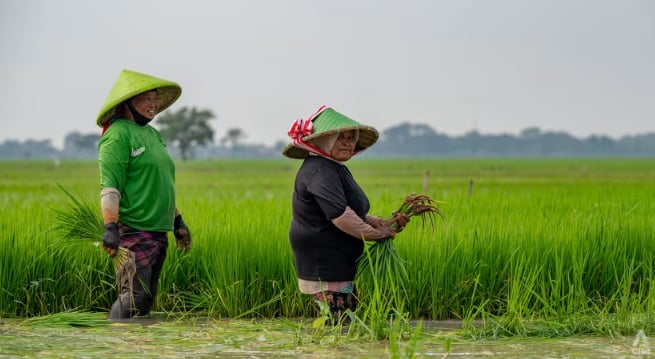
Rice farmers in Kerawang district in West Java, Indonesia. Photo: CNA/Danang Wisanggeni.
Indonesia aims to attract millennial farmers by offering modern technology and a minimum salary of 10 million rupiah (US$640) – nearly five times the average agricultural worker's wage – in its food self-sufficiency drive.
Food self-sufficiency is a key goal of new president Prabowo Subianto, who has said the country should produce enough food for its people and “cannot continue relying on imported food”.
On Wednesday (Oct 23), agriculture minister Andi Amran Sulaiman pledged to achieve the goal in three years, a year ahead of Mr Prabowo’s target.
The government will form 15 brigades of millennial farmers to manage 200 hectares of farmland, he said. The land area is the size of 374 football fields.
“Each farmer can earn a minimum of 10 million rupiah per month, with some earning up to 20 million rupiah. That is higher than a minister’s salary, compared to other jobs offering only 2 million rupiah,” Mr Andi said in an exclusive interview with local media company, B-Universe Media Holdings.
According to the Indonesian think tank Center of Economic and Law Studies, a minister’s salary and allowances could amount to 150 million rupiah (US$9,620) per month.
According to data from the country’s Central Statistics Agency in February this year, the average monthly wage for agricultural workers in Indonesia is around 2.1 million rupiah (US$134), below the national average of 3.04 million rupiah.
The agricultural, forestry and fisheries sectors employ around 40.72 million people, forming 28.6 per cent of the workforce.
“We can’t force the millennials and Gen Z to work in agriculture, we need to create a system where they feel comfortable,” Mr Andi said, as quoted by local media Jakarta Globe.
Mr Andi, who served as agriculture minister under former president Joko Widodo from 2014 to 2019, and again from October 2023, outlined how he would boost agricultural productivity.
Farmers would have access to fertilisers, and the government plans to double the budget for fertiliser subsidies in the near future, he said.
The government has distributed tens of thousands of water pumps to help farmers increase the number of harvests without depending on seasonal rainfall, he said. The pumps help channel water from rivers to fields, and are a strategy in densely populated regions like Java where agricultural land is limited.
Speaking to the media on Tuesday (Oct 22), Mr Andi said there are plans to develop 750,000 to 1 million hectares of new rice fields in places like Merauke in South Papua, Central Kalimantan, South Kalimantan, South Sumatra, West Kalimantan, Aceh and Jambi by next year.
The authorities will also intensify production from existing rice fields through the distribution of water pumps.
The agriculture ministry’s budget of 1.3 trillion rupiah (US$83.4 million) to achieve food self-sufficiency will be used mainly to buy seeds and develop new rice fields, said Mr Andi.
(CNA)
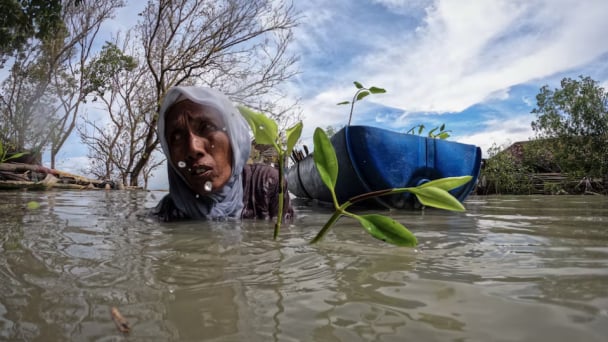
(VAN) Rising sea levels are becoming a real threat in Indonesia. On Java island, a woman keeps planting mangrove trees to protect her home from the sea.
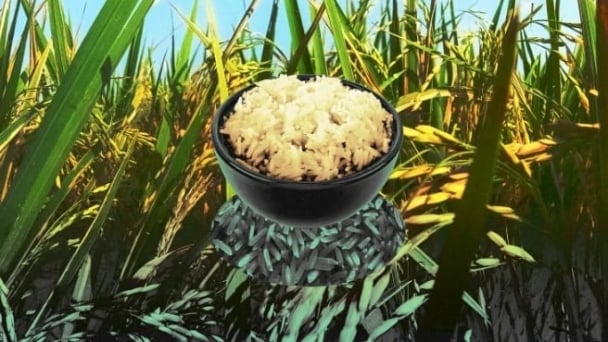
(VAN) Warmer temperatures and more carbon dioxide will boost levels of arsenic, a dangerous heavy metal, according to new research.

(VAN) California's $59 billion agriculture industry faces serious disruption as the U.S. clashes with China - one of the state's major export markets.
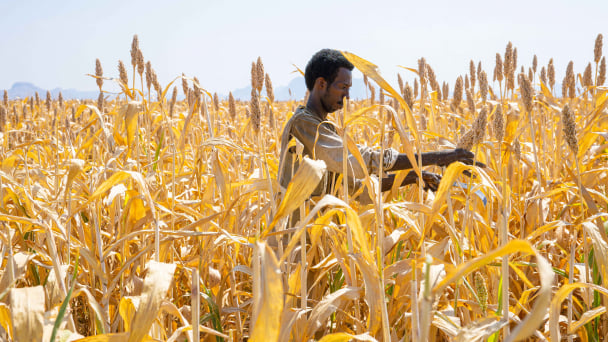
(VAN) Five things you should know about Sudan's food security crisis.
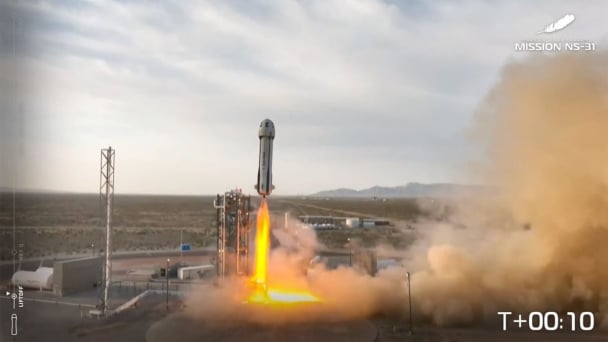
(VAN) 169 lotus seeds selected by the Vietnam Academy of Agricultural Sciences were carried into space by Vietnamese-American astronaut Amanda Nguyen.
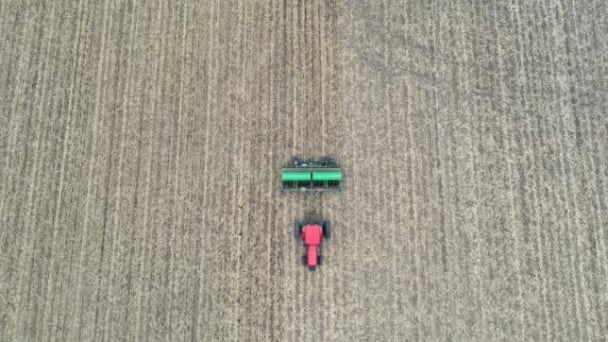
(VAN) Tariffs are making life more expensive for John Pihl. He's been farming in Northern Illinois for more than 50 years.
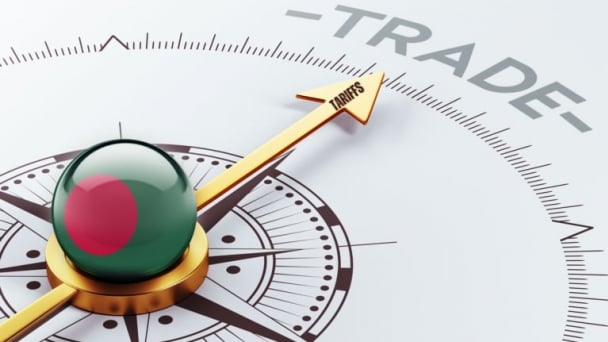
(VAN) European and American farmer organisations are concerned about the import tariffs that the United States introduced on 9 April for products from the European Union. This makes them 20% more expensive.